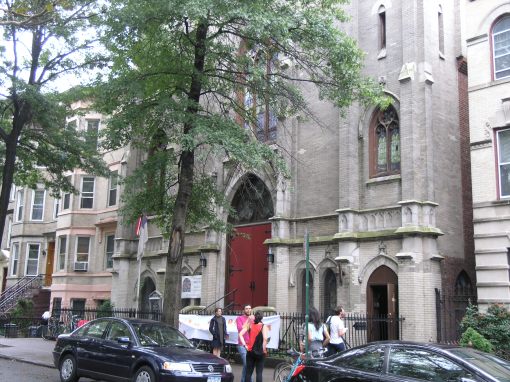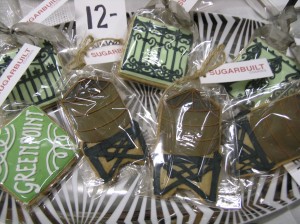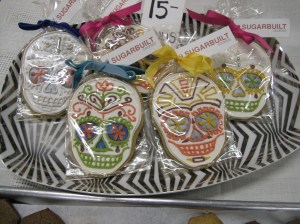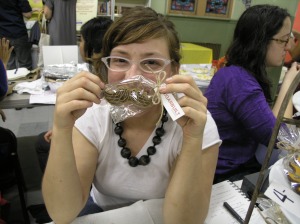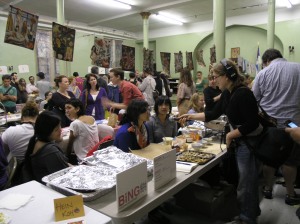Today, on opening day of the Foodshed Market held at the community space known as The Commons Brooklyn (a.k.a., The Commons), I heard one of my most favorite quotes in a while:
“Forget about beating your head against chem agriculture — big agriculture — and just go ahead and start creating a new food system.”
The words were from Melissa Ennen, who along with Lauren McGrath of Rick’s Picks, were hostessing with the most-tess-ing, outside the new neighborhood food spot. Melissa was describing a 1990s article that started building the concept of a “foodshed.” Just like a city sources water from the surrounding area for its watershed, a foodshed is a network of growers from outside the city. The distribution of resources is direct, transparent, and neighborly.
“It’s not necessarily a matter of miles, but definitely a question of sustainability, energy use and transportation, and creating community…not just growing vegetables and food, but growing community,” she further explained.
While touring the vendor tables, I was reminded of the study that showed we have as many as 10 times more social interactions at a farmers’ market than in a conventional store. (And that’s before the food talks back to you. One vendor, The Brooklyn Salsa Company, caps their jars with GET INTO IT! and TAKE the lid OFF, among other ready-to-rumble phrases. Then with the taste, you wave the white flag of surrender.)
The market is a commercial venture by The Commons Brooklyn, an organization self-described as “a skill-sharing space in the heart of Brooklyn”. They host classes and offer office rental for compatible organizations, such as The Brooklyn Food Coalition. There’s a great list of classes this fall, all with an eye towards training people for sustainable food jobs in the future.
To borrow language from the investor world, the Foodshed market is one way for them to build a “diversified portfolio of income”. Recent history has shown that businesses and non-profits alike have to become financially viable. Many organizations have seen their grant funds sputter out, and now such groups are developing new means of earned income. Simply stated, if we lose money building our new food system, then it won’t be sustainable in any sense of the word.
With white walls and light wooden floors, the market space evokes an art gallery — with master works of artisanal cheeses, breads, and specialities crafted by love and enterprise. It’s also part farmer’s market, stocked with well-priced produce from the fields of Migliorelli Farm, near Tivoli, New York, among other vendors. There’s a lot to choose from, and all the sellers offer samples of their edibles, so you’ll find your favorites fast. As one fellow shopper, Maria, said: “When you get to try so many different things, you don’t just ‘go to the market’. You’re in it. You live it.”












